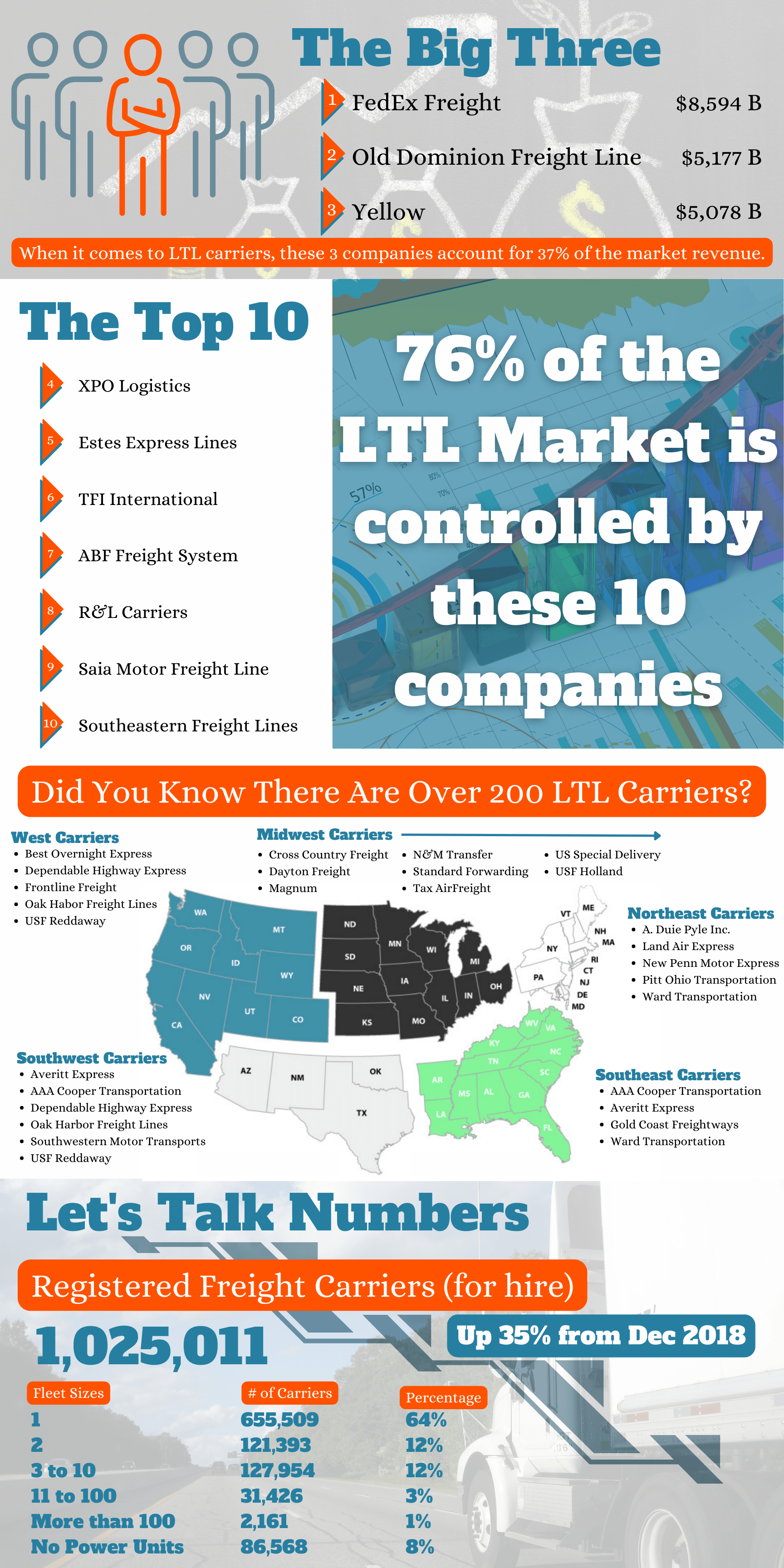There are a lot of LTL carriers out there, but how do you choose the right one for your business? A handful control most of the LTL market, such as FedEx Freight, Old Dominion and Yellow, who have years of experience and a proven track record of delivering quality service.
Logistics Management shared the Top 25 Less-Than-Truckload (LTL) Carriers: 2021 Revenues. The big three account for 37% of the market share, but did you know there are over 200 LTL carriers who can also provide great service at a great price?

WHEN IT COMES TO THE RATE FOR LTL FREIGHT SHIPPING KEEP THE FOLLOWING IN MIND:
1. Freight Density: Density is key when it comes to shipping. The dimensions and weight for your shipment are used in a formula that calculates how much space an item will take up.
2. Origin and Destination: Shipping costs are determined by how far you need your freight to go. When shipping internationally, you need to consider currency changes, taxes, and duties
3. Freight Classification: Freight classification helps determine the degree of difficulty in shipping your item. The lower the freight class, the less risk, which means lower costs to ship.
4. Delivery Date: Freight classification helps determine the degree of difficulty in shipping your item. The lower the freight class, the less risk, which means lower costs to ship
5. Additional Surcharges: Freight classification helps determine the degree of difficulty in shipping your item. The lower the freight class, the less risk, which means lower costs to ship
When it comes to LTL shipping, you have a lot of options. You can go with one of the big three or choose from the over 200 other LTL carriers out there. It’s important to do your research and choose the carrier that is right for you and your business, especially is you must adhere to OTIF or MABD.
HERE ARE SOME THINGS TO CONSIDER WHEN CHOOSING AN LTL CARRIER:
Reputation: You want to choose a carrier with a good reputation. Check out online reviews and talk to other businesses in your industry to get recommendations.
Rates: LTL rates can vary significantly from carrier to carrier, so it’s important to get quotes from several different companies before deciding.
Experience: Choose a carrier that has experience shipping the type of product you are shipping. This will ensure your shipment is handled properly and arrives safely at its destination.
Location: If you are shipping internationally, make sure the carrier you choose has experience shipping to your destination country. This will help avoid any delays or problems with customs clearance.
Network: Some carriers have a more extensive network than others, so if you need your shipment delivered to a specific location, make sure the carrier you’re considering has service to that area.
Transit Times: LTL transit times can also vary from carrier to carrier, so if you need your shipment delivered by a certain date, make sure to check each carrier’s transit times to see which one can meet your needs.
While the big three are great choices for shipping, they may not be the best fit for your business. With over 200 LTL carriers to choose from, it’s important to do your research and find the one that’s right for you. Need help finding a carrier that fits your needs? Get in touch – we would be happy to assist you in making the best decision for your business.
MVP Logistics is your logistics partner for supply chain, warehousing and fulfillment and all your freight transportation and logistics management needs. Our Minneapolis, Houston and Los Angeles warehousing, can provide national and international shipping services as needed. Find your solution today.
